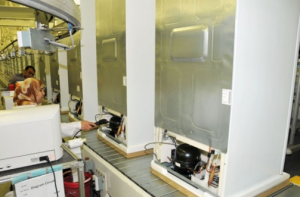How to develop te chnologies in Middle-Eastern and North African countries? Whether it’s educational reforms or the fight against corruption, improving the regional economy faces many challenges. Experts from the FEMISE and ERF (Economic Research Forum) have identified several avenues that could provide new momentum through innovation.
chnologies in Middle-Eastern and North African countries? Whether it’s educational reforms or the fight against corruption, improving the regional economy faces many challenges. Experts from the FEMISE and ERF (Economic Research Forum) have identified several avenues that could provide new momentum through innovation.
The FEMISE economists argue that the dissemination of new products can unlock a country’s economy, providing it puts in place a programme of reforms promoting technological advancement and combined with institutional restructuring.
Paradoxically, technological innovation itself does not create jobs. “We see jobless economic growth, that is to say that GDP increases without any new jobs being created,” points out Jean-Eric Aubert, a specialist in innovation policy advising international organisations and former programme manager at the OECD and World Bank.
Aubert adds, “The key is in adapting social welfare so that everyone receives a minimum income and training opportunities to update skills and implementing measures to encourage the use of self-employed persons rather than company or state employees.”
Rising to the challenges
If boosting innovation is certainly a step towards progress in North African countries, youth unemployment caused by a lack of both opportunities and appropriate investment remains a major challenge.
A reform of the education system that includes qualifications more suited to the workplace is therefore a necessity. In addition to providing financial aid to businesses, the state needs to intervene in other areas. According to Jean-Eric Aubert, “It must take down institutional barriers, protect innovators by implementing intellectual property laws and create technology parks.”
The report indicates that 31% of businesses in the Middle East and North Africa have been obliged to make under-the-table payments over the past three years, against a world average of around 17%. “Less bureaucracy will mean fewer opportunities for corruption,” adds Aubert.
The economists also recommend developing “frugal innovation”, described as “anything that costs less money, consumes less energy and is useful to the greatest number of people”.
To learn more about the Expert Group meeting in Cairo, please click here



